This website uses cookies so that we can provide you with the best user experience possible. Cookie information is stored in your browser and performs functions such as recognising you when you return to our website and helping our team to understand which sections of the website you find most interesting and useful.
Flying high: a chat with Red Bull Racing’s Christian Horner
By Jeremy Taylor | 12 March 2022 | Cars & Yachts
With his team’s Max Verstappen taking the 2021 championship in a dramatic finish, we find out why the reign of the longest-serving team principal in Formula One is only just beginning
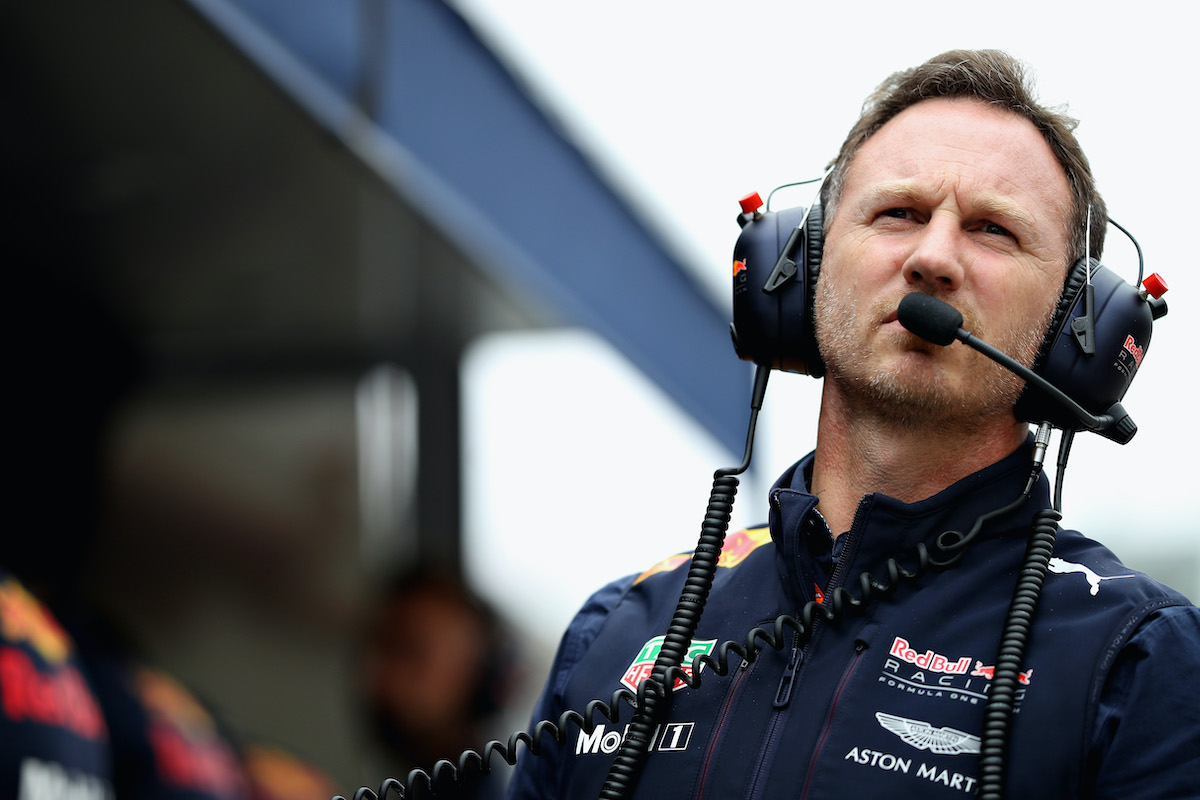
Christian Horner looks impassively at a stack of trophies in the foyer of Red Bull HQ near Milton Keynes. Scores of F1 mementos are arranged 12-high to the ceiling, coveted sculptures once doused in champagne then brought back home to Buckinghamshire.
“When I see the trophies, I feel an energy and excitement about the place – they’re a massive shot in the arm,” he says. “I think the tough years of not winning battle harden you. It makes me more determined than ever to succeed because I remember the feeling of being a winner.”
From 2010 to 2013 Horner and Red Bull ruled the pit lane, as Sebastian Vettel raced to four consecutive drivers’ championships. The first was the most memorable, a victory in the final race of the 2010 season at Abu Dhabi, against Fernando Alonso and the might of Ferrari. Sound familiar?
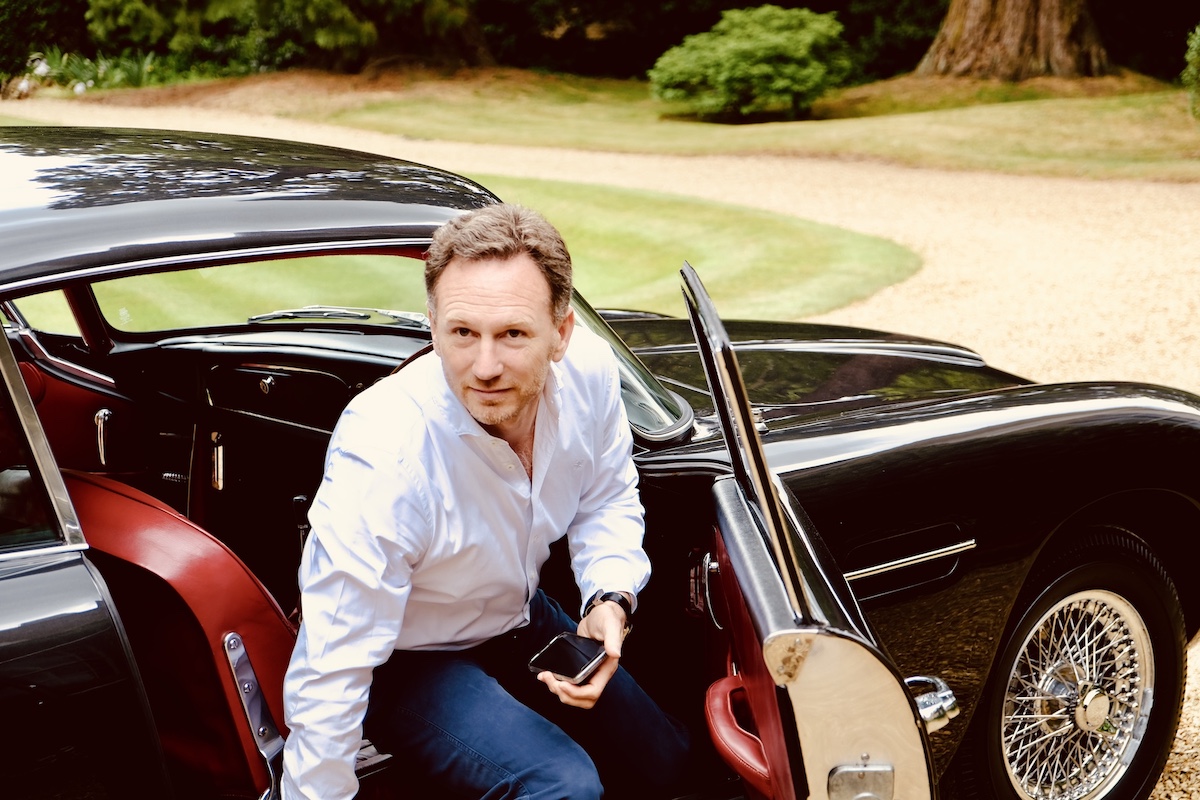
For the past seven years, however, Mercedes and Lewis Hamilton have proved the dominant force in Formula One. Then in 2021, bitter rivalry between the seven-time world champion and Red Bull’s young ace, Max Verstappen, provided one of the most exciting and controversial season ends in years – at the same racetrack.
“Mercedes and their team principal Toto Wolff have been pretty much unbeatable but, if you keep pushing, keep believing in yourself then 2021 proves anything is possible,” says Horner.
The 47-year-old, who married former Spice Girl Geri Halliwell in 2015, has had a hand in all of Red Bull’s F1 success. When he was brought in to manage the fledgling team in 2005, nobody would have guessed, not least this former racing driver from Leamington Spa, that 17 seasons later he would still be at the helm.
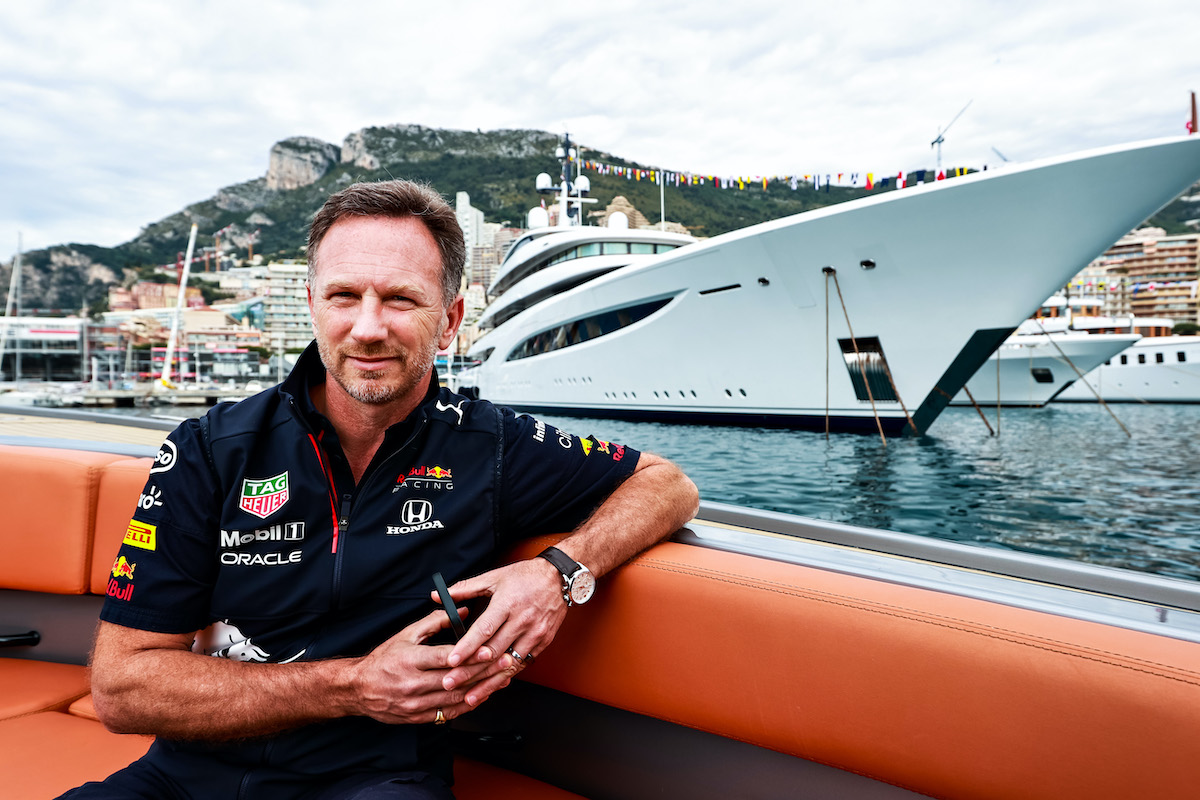
“Everybody thought an energy drink maker from Austria, with no proper experience in F1, stood no chance,” recalls Horner. “We were up against Ferrari, McLaren and Williams. There were big characters, big egos – we were almost starting from scratch. Bernie Ecclestone and Max Mosley were still running the show then. Ron Dennis was at McLaren and Jean Todt was in charge at Ferrari. Frank Williams was hands on at Williams and Flavio Briatore was the flamboyant boss at Renault.
“They were huge names but the one thing most of them shared was the ability to look beyond their own team and do what was best for the sport. If Netflix had made a documentary series then it would have been unmissable.”
The streaming platform’s hit series Drive to Survive has provided F1 with a much-needed younger audience, helping to broaden its appeal in the US, too. Now in its third season, it was noticeable that Mercedes and Lewis Hamilton barely featured in the first series.
“Mercedes didn’t get involved at the start because they wanted the series to focus solely on them, as world champions,” says Horner. “I think they were sulking a bit for the first year – Toto didn’t think it was a good deal, it wasn’t right for the sport. Then they saw the impact Netflix could have and suddenly there’s a lot more Lewis.”
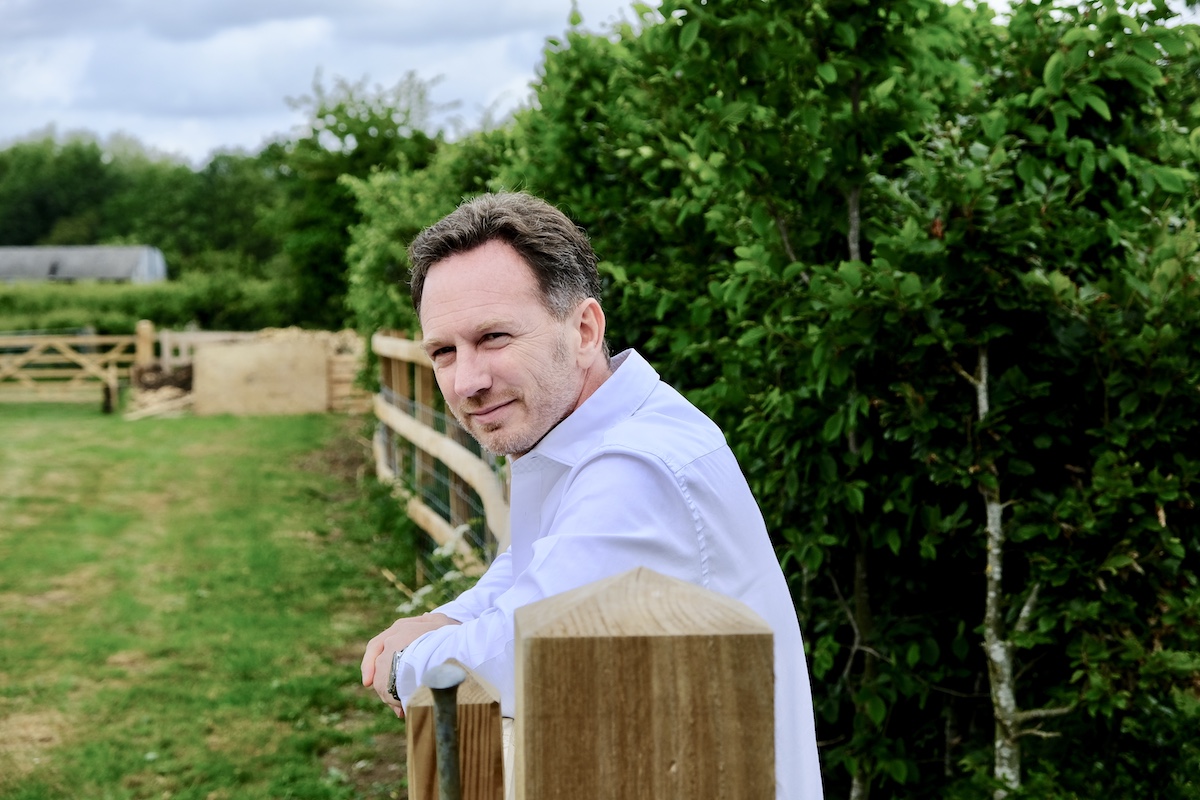
A thirst for victory
As the 2021 championship roared towards the final grand prix in Abu Dhabi in December, there was still everything to race for. Just a handful of points separated Hamilton and Verstappen, with Horner hungry for his first championship since 2013.
“Normally by that stage of the season the title has been wrapped up – but not last year,” he said. “I hoped it didn’t have to go to the final race but now I think it was inevitable. This championship went to the wire, which was great for F1 but not much good for my sleep pattern.
“I realised the gloves were off at the British Grand Prix in July. That’s the moment I really sat up and took notice – when Max and Lewis crashed on the first lap. I don’t think many people realise the severity of a crash like that at over 200mph. It was brutal. Max was momentarily knocked out and we couldn’t reach him on the team radio. Your immediate focus is on the health of your driver.”
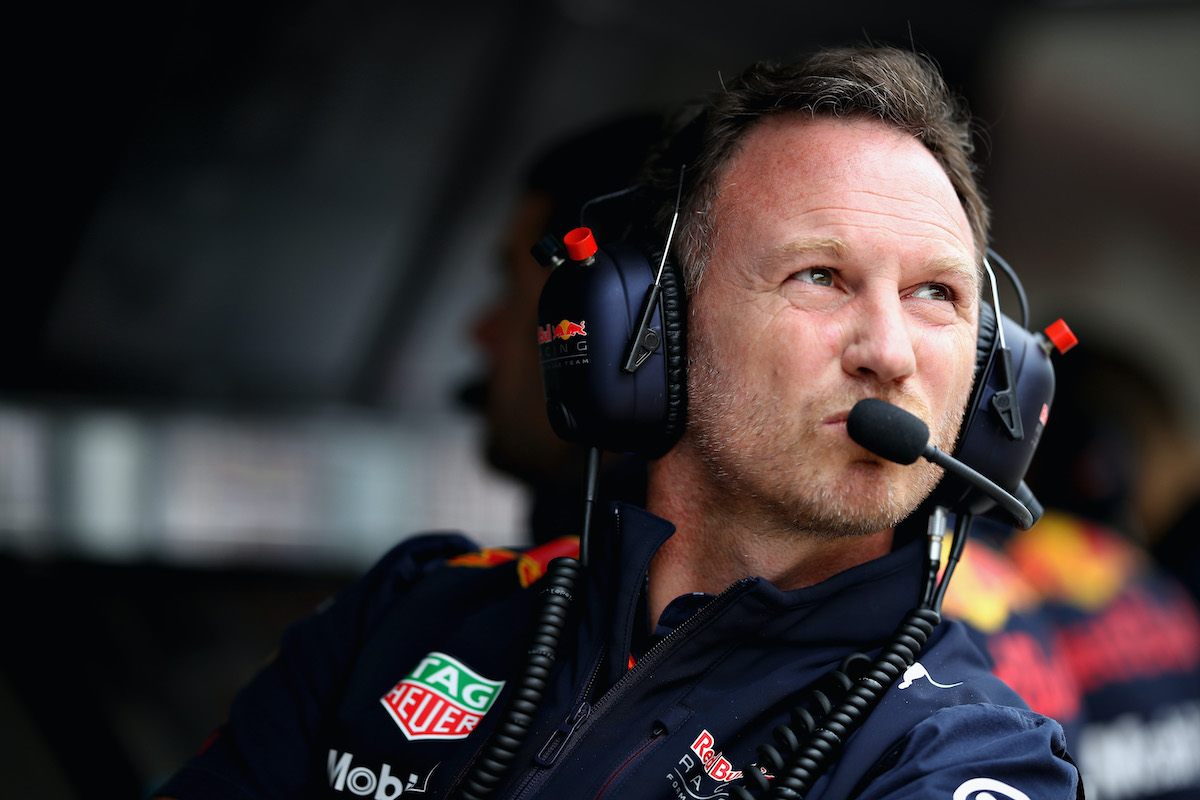
In the pit lane, the media played up the rivalry between Horner and Wolff – two very different characters. “The intensity of the competition was so fierce last year that one mistake might have cost either team the title,” says Horner.
“It was also the first time Mercedes had been under that level of pressure in seven seasons. Toto and I are not similar characters. He is a financial guy and I grew up in the industry.”
The 2022 season will see big changes in F1 legislation, focused on aerodynamics. It will mark a return to the ground-effect formula that allows underbody tunnels in the cars – a feature not used in F1 since the 1980s.
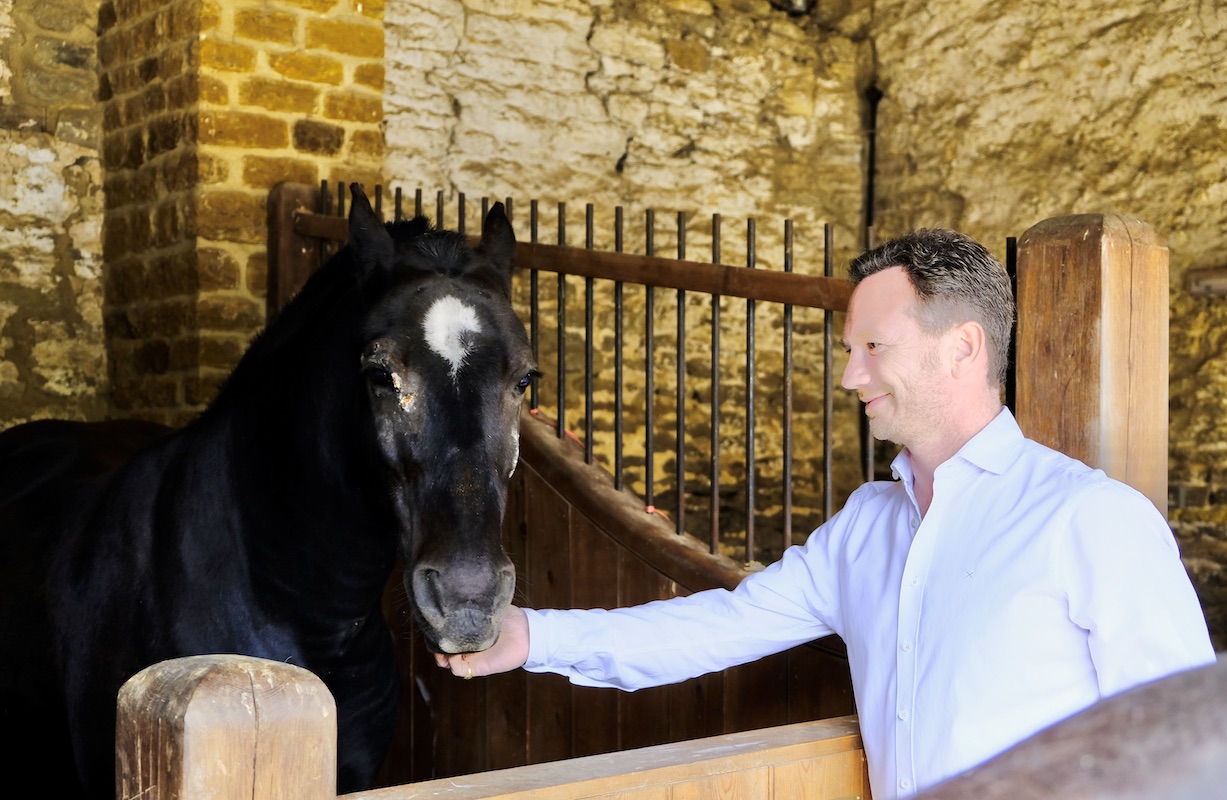
“Not relying on wings for downforce reduces the ‘dirty air’ affect, which until now has prevented following drivers from getting too close to the car in front,” explains Horner. “Making the cars easier to follow will promote overtaking and is a totally different philosophy to what we have now. It’s a clean sheet of paper for everyone. Some will get it right and others won’t.”
Until then, Horner will be filling a new space in the trophy cabinet and hoping Verstappen continues to take the chequered flags in 2022. “There’s definitely a lot more room for silverware – and this time the pressure is on Mercedes.”







